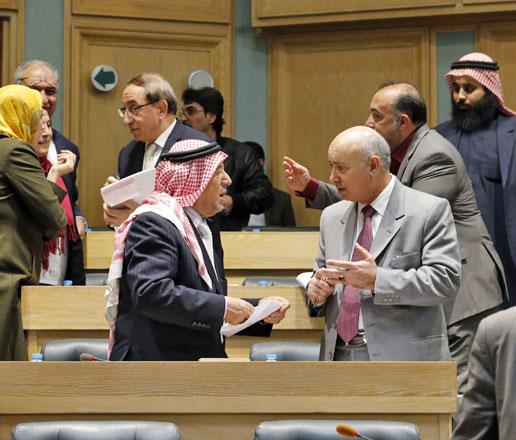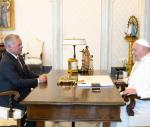You are here
Ambassador to Iran recalled for ‘consultations’
By Khetam Malkawi - Apr 18,2016 - Last updated at Apr 18,2016

Minister of Media Affairs and Communications Mohammad Momani
AMMAN — Jordan on Monday recalled its ambassador to Tehran for consultations over what the government described as "Iranian interference in Arab countries’ affairs".
Minister of State for Media Affairs and Communications Mohammad Momani was quoted in a statement by the Jordan News Agency, Petra, as saying that Iran's policies would result in crises and deepen instability in the region, calling on Tehran to work on building trust with its Arab neighbours.
The minister noted that Jordan had expressed support for the agreement between Iran and the P5+1 group and was hopeful that the deal would be a chance to improve the Arab-Iranian relations on the basis of neighbourliness and non-interference.
“But the period that followed the signing of the deal has seen frustrating positions from the Iranian government that does not conform to broader hopes,” the minister said, adding that many acts or statements made by the Iranian government or its officials in that period were considered as unacceptable interference in internal affairs of brotherly Arab countries, mainly the Gulf countries.
For political analyst Fahed Khitan, this move came to step up the Kingdom’s support for Saudi Arabia’s stance rejecting Iranian interference in the Arab countries.
The same view was echoed by political analyst Samih Maaitah, former state minister for media affairs, who noted that this “move is meant to support the Gulf countries”.
He noted that the decision came a few months after a mob attacked the Saudi embassy in Tehran, triggering anger, among Saudi Arabia and its allies. Jordan denounced the violence but kept its envoy in the Islamic republic.
As for the Jordanian-Iranian ties, Maaitah explained that since the Iranian revolution, the ties have been “cold”. Despite keeping the diplomatic representation, the Kingdom has always been cautious and did not allow Tehran to interfere in its internal affairs or affect its stability.
However, after the recent incidents and the interference of Iran in Yemen, Lebanon and Syria, which was rejected by the Gulf countries, in addition to the statement adopted in the Islamic summit in Turkey denouncing Iranian regional behaviour, Jordan decided to take this move.
Last week, Jordan and Saudi Arabia issued a joint statement rejecting the policy of Iran’s interference in the countries of the region.
The communiqué was drafted during a visit by Saudi Deputy Crown Prince Mohammad Bin Salman Al Saud to Jordan.
The two sides “voiced their rejection of the policy of interference followed by Iran in the region, which incites sectarian sedition and fuels terrorism”. They warned Iran against “continuing with its present approach, which deepens disputes and conflicts in the region and jeopardises its stability”.
Related Articles
AMMAN — The Lower House's Legal Committee on Tuesday endorsed the 2015 draft elections law almost exactly as referred by the government with
AMMAN — After more than eight years of delay, the 10th Jordanian-Iranian economic committee is expected to meet this year to review, update
AMMAN — The Lower House on Tuesday called on Iran to ease off its anti-Saudi rhetoric and stop targeting the security of Gulf states.Reading
















